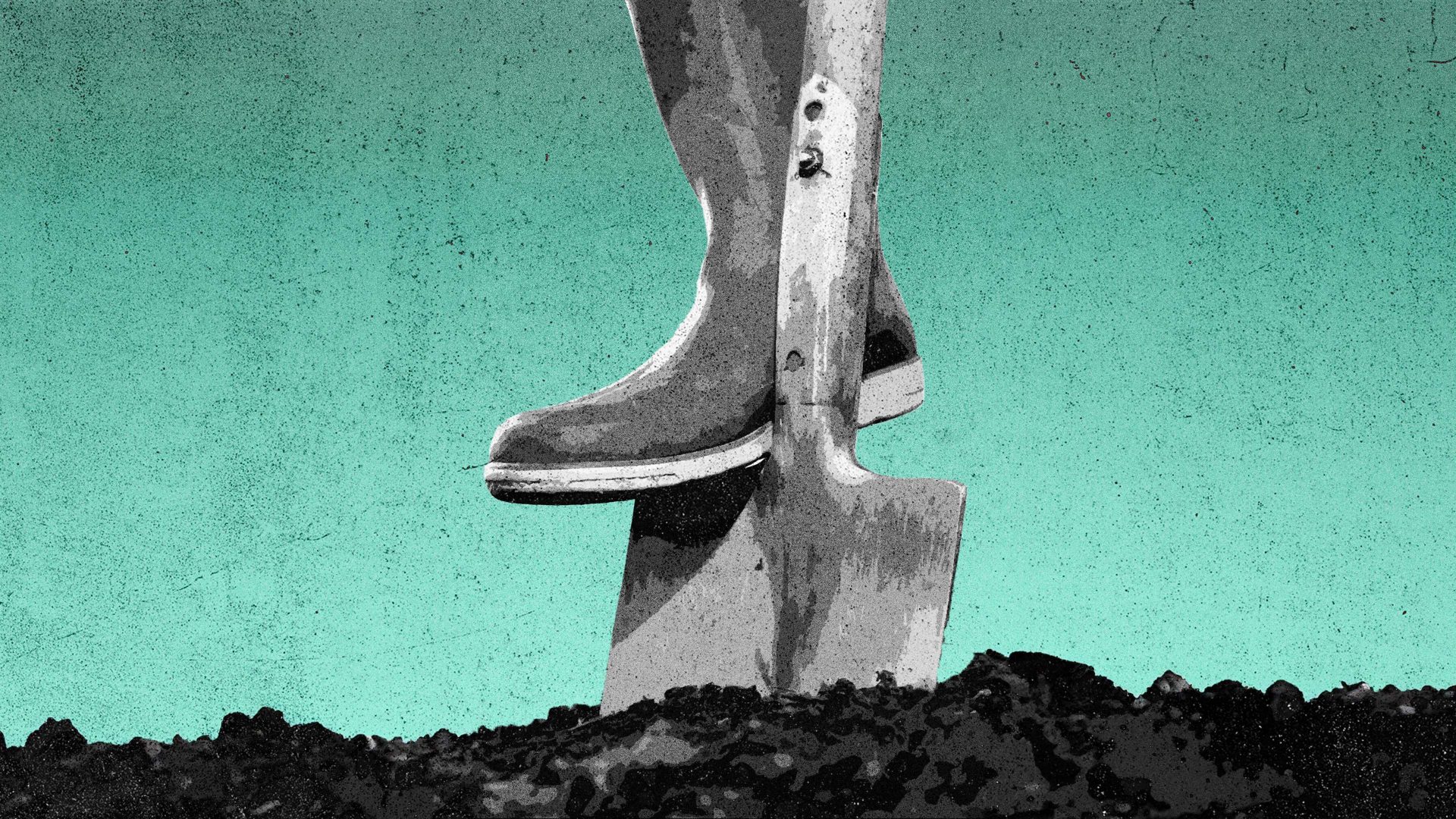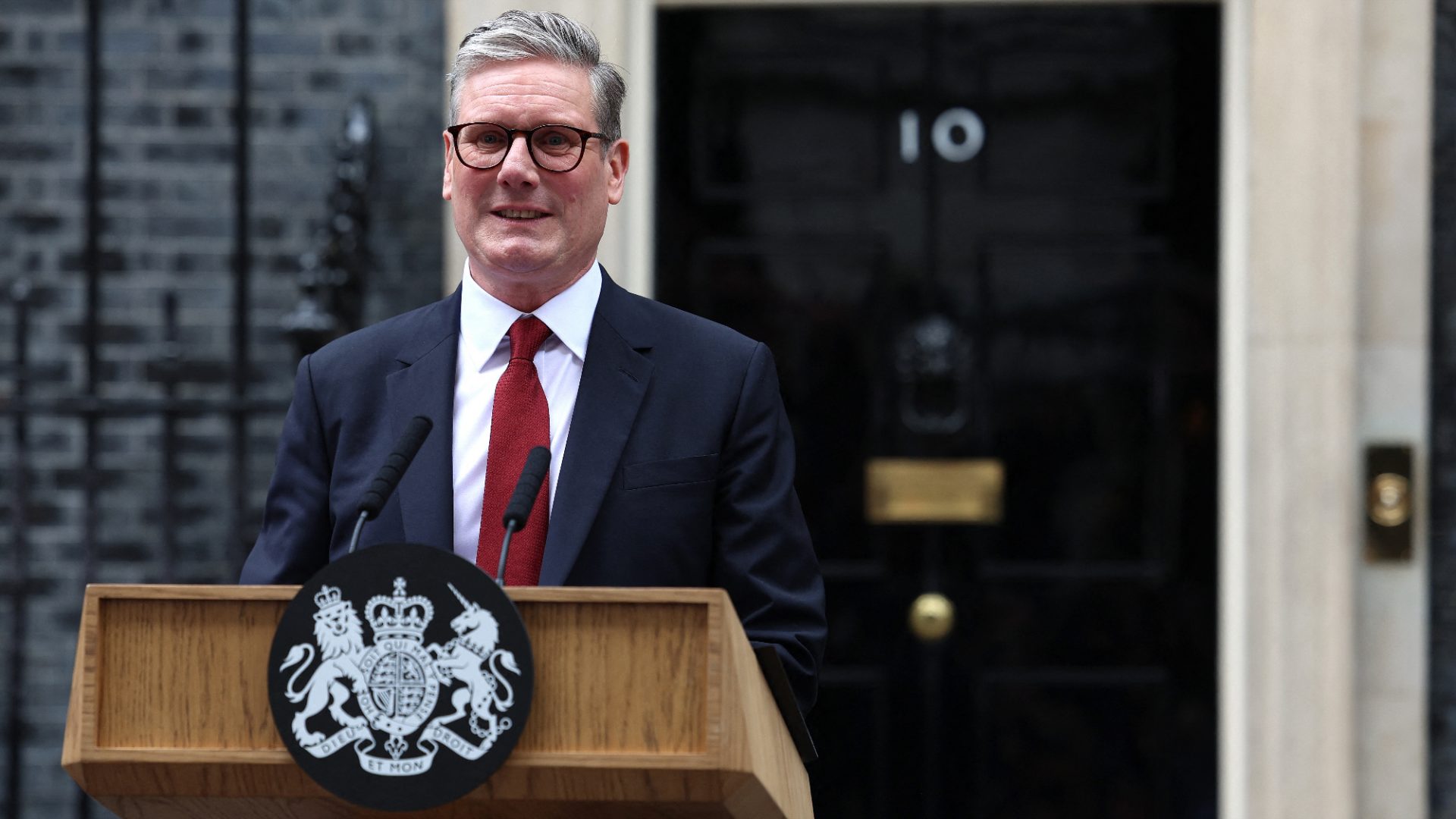Rather in the style of those newspaper features that tell you how to have a family holiday for £2.50 (stay at home, go cycling, have picnics, etc), or like those ghastly Tory MPs who suddenly decided people don’t need food banks because they can feed a family of four on porridge for a week, the new Labour government is going to have to find ways to do stuff on the cheap.
There is some money in the coffers, there are tax rises that are already in the system and some more that Labour is going to have to introduce – probably windfall taxes, VAT on private schools, maybe a small rise in fuel duty.
But there are huge areas of the state that are falling to pieces and will need a lot of money. Those include health, defence, social care, the courts, prisons, schools, and local government.
All are victims of the low growth the new chancellor, Rachel Reeves, has identified as her central challenge. Had UK growth been at just the average G7 level over the last 14 years, the British economy would be £140bn larger, and the tax take £58bn bigger. How to plug that gap, and on the cheap?
On Monday, Reeves laid out quite a few ways of doing just that in her first major speech since taking office.
First, she has immediately taken action on a planning system the Tories have fiddled with endlessly for 14 years while giving in to Nimbys at every turn. Reeves ended that with one speech.
Mandatory targets for house building, more planning officers, an end to the ban on inshore wind turbines, and above all a commitment to put country before party and put economic growth and development at the heart of the system. All will help growth, but that will not happen immediately. It will encourage a building boom, but the long-term benefit is that it will also help restructure the economy towards growth and progress.
Labour is now committed to an industrial strategy. This is what British industry has been crying out for.
Tory governments have become so obsessed with the idea that this involves “picking winners” that they have always refused to even countenence the proposal. But numerous industry bodies have been begging for this policy – one that is virtually free.
Various models are even available for Labour to take off the shelf. Make UK, formerly called the Engineering Employer Federation, has one that you could just dust off. It calls for more and better infrastructure, which would be costly, but also better training and skills, which shouldn’t be.
It demands better access to finance, better directed research and development, a stable government environment, proper coordination of various government schemes that are currently complicated, poorly targeted and obscure; and a vision of what industries we want to encourage – green ones being the obvious answer. Much of this is just common sense, letting business know that things are not going to change again overnight so they can safely invest for the future.
The skills shortages in the UK are a national embarrassment, and Reeves mentioned this, too. A large part of the problem is down to the 2016 changes to the apprenticeship system, which was so bad that it left billions unspent and cost hundreds of thousands of young people the chance to train for a well-paid and rewarding job.
Reforming the apprenticeship levy so that it works better would cost very little, if anything, and the money is there – it just has to be spent, and spent better. With an ageing workforce, not training the young to the best possible extent is suicidally stupid, but that is what the Tory government allowed to happen for eight long years.
There are a lot of other things that need doing, too.
Universities are in serious trouble. A rise in the fees they can charge is sadly necessary, as is removing constraints on foreign students, which many rely on to pay higher fees and keep their heads above water. Further education is one of the best things the UK has going for it; letting it prosper is not expensive, but it is vital.
The Tories have hampered the sector in a pathetic attempt to bring down headline immigration figures. A more shortsighted policy it is hard to imagine. Reversing this is free.
Reform of the nationalised utilities is a must. Labour is sensibly waiting to let the rail industry fall into its hands for free when current contracts expire. Getting the rail network to work in a coordinated and reliable manner would help commuters and travellers, and would also take cars off the road.
Water, electricity, gas and telecoms also need big improvements. Investors need reliably clean water, easy access to electricity and gas, and fast broadband. An all-party report in 2022 found that poor broadband was holding back the rural economy. Universal high-quality coverage is a must.
The National Grid is having to rebuild its network to connect new green production into the system, and there are serious doubts about whether the country will have enough electricity in 10 years’ time. A firm grip will help, as will those planning reforms.
The water industry needs a huge shake-up. You are hardly going to encourage investment in the country if the rivers are full of shit.
Water needs investment, and the government cannot afford to do that for privatised sectors, but it can regulate them better. That won’t cost the taxpayer anything. The utilities will scream blue murder, but every other sector of the economy will love it.
There also needs to be a root and branch reform of the tax system. It is far too complicated, has far too many loopholes, and endless tax breaks and schemes, very few of which are really effective at driving growth.
Why do wealthier people get by far the biggest tax break to save into their pension? Is entrepreneurship rewarded enough, or too much? Why is capital taxed at a lower rate than work? Why can the wealthy drive a coach and horses through inheritance tax? Some kind of long-term investigation into the whole tax system would be welcome.
A commission that reported in six months could be the launch pad for a revolutionary spring budget next year, making tax fairer and bringing in more money.
Then, of course, there is the elephant in the room: Brexit. It has slashed investment by British and foreign firms in the UK, and delays at the border have pushed huge costs on to business, all of which is wasted on pointless red tape, and it is getting worse. SMEs in particular have been put off exporting and importing in huge numbers; the hits to growth and wealth creation are enormous.
Sir Keir rather booted this one into the long grass when he ruled out rejoining the EU or the single market in his lifetime. But we can only hope that a new relationship with the rest of Europe is on the way.
The new foreign secretary’s first visit was to Germany; a clear signal of a new grown-up response to the EU. It is a long way from that to re-negotiating the dismal deal that Lord Frost and Boris Johnson foisted on us, but there is still a lot that can be done.
Getting mutual recognition of professional qualifications would be a great help, as would rejoining Erasmus or a similar scheme. The EU has even offered us that one, although Labour has so far said it won’t rejoin – a stupid mistake. The hospitality industry alone would bite their hands off if they could let some students into the country who could work in bars, restaurants, and clubs part time. Again, this would all cost nothing and would really help the economy.
Even if the improvements may have to be slow and minor to start with, all these low-cost policies would make a difference and show that the government knows what works and is not bound by incorrect dogma. It would also mean what money there is can be spent where it is really needed.
On top of the long list of departments that desperately need more funds, the one thing the government has to find money for is investment. The country is crumbling. It needs a long and sustained period of above-trend investment. Unfortunately, it looks as if this is not at the top of Labour’s list.




